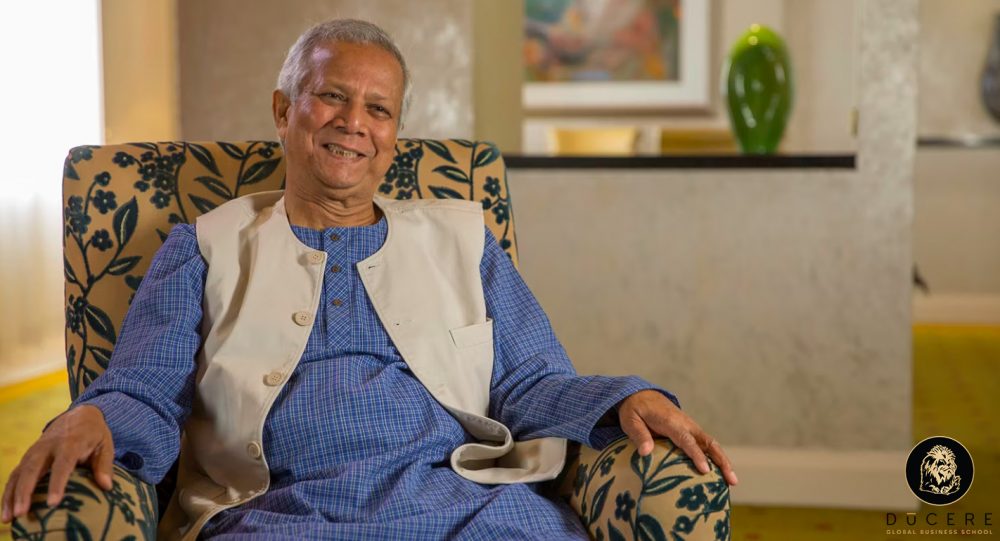Bangladeshi Nobel Peace Prize winner Muhammad Yunus is a true colossus in economics and ethical business. He has been called “the world’s banker to the poor” for his lifelong crusade to persuade corporate money lenders to provide small amounts of microcredit to impoverished entrepreneurs in developing countries.
He pioneered the practice by founding the Grameen Bank in 1976, which has helped about 10 million customers, mostly women, across multiple countries.
Yunus, who is also a Ducere Global Leader Faculty Member, has been the recipient of more than 50 honorary degrees in 20 countries, and has more than 100 humanitarian and business awards for his efforts to alleviate water pollution, environmental degradation and a lack of access to healthcare and education, often incurring the wrath of his country’s authoritarian governments.
Before Grameen was formed, Yunus was so exasperated with Bangladesh’s major banks that he took a huge personal risk.
“Banks lend money to people who already have lots of money, so the majority of people have no access to banking services,” he observes.
“People suffer, loan sharking goes on. It came to my mind, ‘Why don’t I lend the money myself?’ If they come to me, they’ll be liberated from the loan sharks. I was giving money out of my own pocket. And that was the beginning of microcredit.”
A desperate solution
It was definitely a gamble, but Yunus was certain the villagers he was funding would repay his confidence in them.
“I didn’t worry about the risk,” he says. “I was a desperate person trying to see what could be done in a desperate situation. Soon, my money was running out so I went to the bank and they said they can’t lend money to poor people.
“The world is changing very fast and it’s the task of young people to take what we see as impossible and make it possible.”
“After months, I offered myself as a guarantor, even though I had no idea how much money would be involved, and luckily it worked,” he continues. “I never had to pay anything back to the bank.”
The concept of microcredit has now spread throughout the world and been responsible for lifting millions out of poverty.
In addition to his Nobel Prize, he’s received the Presidential Medal and Freedom and the Congressional Gold Medal in the United States.
“The world is changing very fast,” he reflects. “And it’s the task of young people to take what we see as impossible and make it possible. The only thing you need to make it happen is to make up your mind to do it.”
The CEO Magazine is proud to have partnered with Ducere Global Business School to bring our readers career-driven MBA programs. Click here to find out more.



